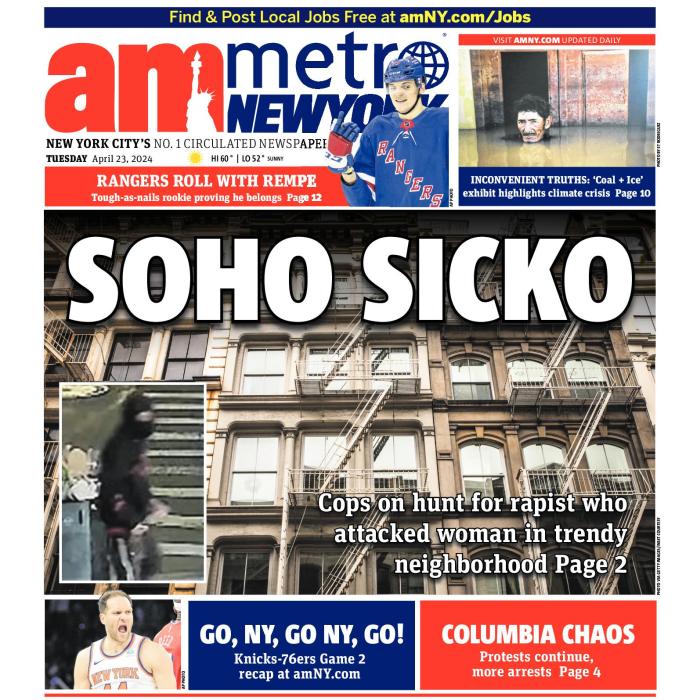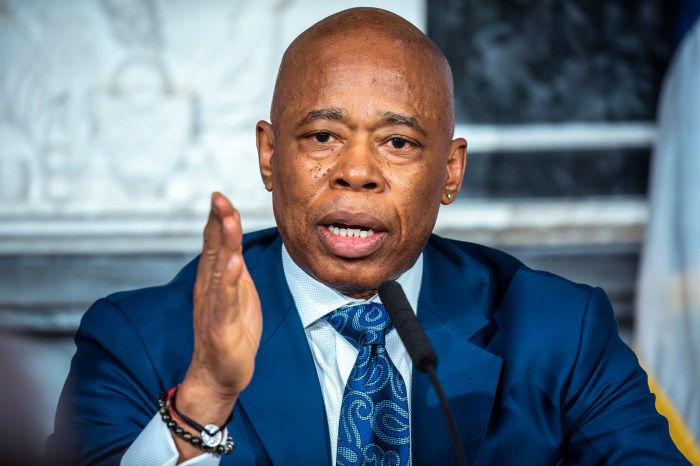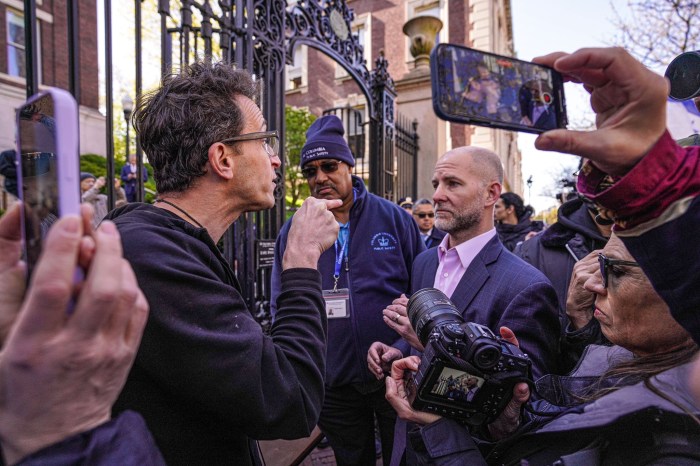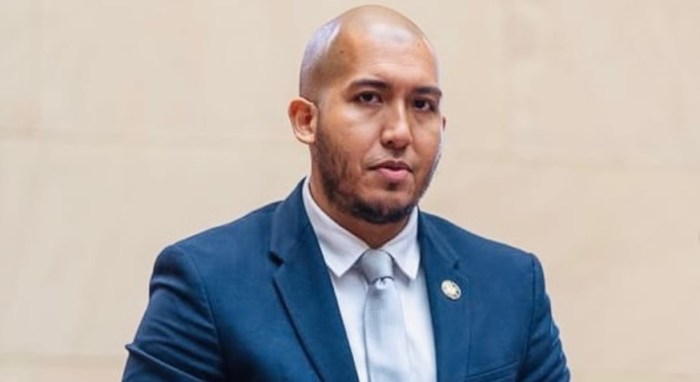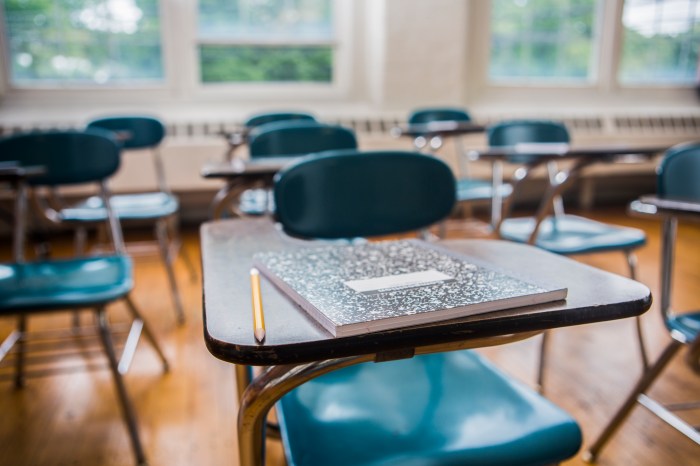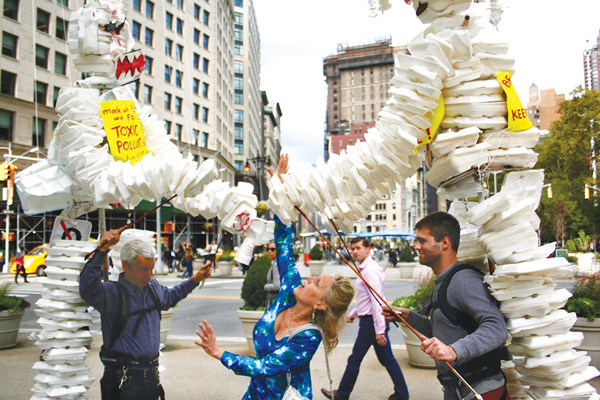
BY YANNIC RACK | When a judge struck down the city’s ban on plastic foam food containers late last month, among the many environmentally conscious New Yorkers who disapproved were a group of East Village public school students who had campaigned for the ban as part of their mission to achieve zero-waste school cafeterias.
“The students and teachers were so disappointed and shocked, because they had worked so hard on this. I don’t think anyone expected that this was not going to go through,” said Debby Lee Cohen, the executive director of Cafeteria Culture, a grassroots organization that works in partnership with schools across the city.
Cohen said the fifth-grade students at P.S. 34 in Alphabet City, among other area schools, had played a role in helping to achieve the unanimous City Council vote that banned the use of polystyrenes, more commonly known as Styrofoam, citywide.
“There’s often a lack of art and environmental funding for those schools,” Cohen said. “So it’s very cool that the kids in this school helped us — they learned to be advocates and we held debates on whether polystyrene should be banned or not.”
In November 2013, the fifth graders stood on the steps of City Hall with councilmembers from across the city, advocating for a ban with the help of giant puppets made out of Styrofoam food trays.
The “data puppets,” so called because they visually show the massive amount of polystyrene products previously used in the schools, were built by community members young and old at the Sixth Street Community Center.
“Our whole goal was to get people to laugh first and then go, ‘What is this?’ so we could give our elevator pitch,” Cohen said.
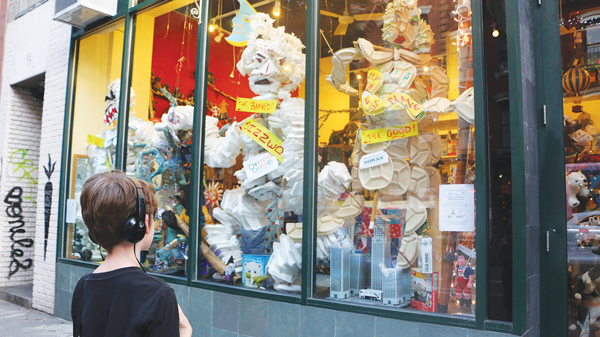
The ban, which was proposed by former Mayor Mike Bloomberg and implemented by Mayor Bill de Blasio this July, was overturned in State Supreme Court on Sept. 22.
Justice Margaret Chan, in her ruling, called the ban “arbitrary and capricious” and denied the city’s claim that recycling used polystyrene containers was neither environmentally effective nor economically feasible.
The judge ordered the Department of Sanitation to reconsider the ban in light of a proposal by the Dart Container Corporation, one of the biggest manufacturers of plastic foam products for the food industry. Dart said that it would pay for better machines to clean and sort the material and keep most of it out of landfills.
A group of manufacturers and recyclers, including the Restaurant Action Alliance, had sued the city in April to stop the ban, arguing that it was actually possible to recycle the containers and even save the city money in the process.
Sanitation Commissioner Kathryn Garcia determined last December that the material was not recyclable. But Dart claims that it can recover more than 90 percent of the foam. In addition, a recycler in Indiana said he would buy the Styrofoam waste for the next five years.
The judge accused the city of ignoring these options when making the decision to ban the material, but the mayor immediately announced that he was not backing down.
“We disagree with the ruling,” a spokesperson for the Mayor’s Office wrote in a statement. “These products cause real environmental harm, and we need to be able to prevent nearly 30,000 tons of expanded polystyrene waste from entering our landfills, streets and waterways. We are reviewing our options to keep the ban in effect.”
The ban, passed in January and effective since July, includes a six-month grace period, so businesses would have until Jan. 1, 2016, to comply. After that, violations would be punishable by fines, though the city says that for the first year it would only hand out warnings.
Some proponents of the ban say that the court challenge comes too late anyway because the administration’s efforts already pushed the city’s businesses over the line. Ron Gonen, a former deputy sanitation commissioner, told Crain’s New York that the vast majority of food-serving businesses in the city had already stopped, or never started, using Styrofoam products — a list that now includes the city’s two biggest former offenders, McDonald’s and Dunkin’ Donuts.
The city’s school cafeterias, including those in the East Village, are already Styrofoam-free, which Cohen said won’t change, no matter what happens with the ban. In May, six of the nation’s largest school districts, including New York City, ditched polystyrene trays for eco-friendly compostable plates.
“Technically, [the ruling] doesn’t affect it at all,” Cohen said of the absence of Styrofoam in the city’s schools. Polystyrene trays are around one-third the cost of compostable ones — about 4 cents apiece, compared to about 12 cents.
“It’s a five-year contract and who knows who the mayor will be then,” Cohen said. “But they now have a product that’s not quite cost-neutral, but almost, and prices will come down. The main reason for not doing it was the cost, and now it’s dropped down, and will continue to go down.”
The Styrofoam puppets made at the community center recently made an appearance as part of the People’s Climate Movement Day of Action on Wed., Oct. 14, when two volunteers carried them from their permanent home in the storefront of toy store Dinosaur Hill, at 306 E. Ninth St., to the Flatiron Plaza, at E. 23rd St. and Fifth Ave.
Artie Athas, one of the volunteers, said his son Hudson, a fifth grader at The Earth School on E. Sixth St., was one of the kids involved in advocating against polystyrene.
“He participated in spreading the word among his fellow classmates and his teachers. He just wanted to make a positive effect in his school,” Athas said, in between shouting “Happy Climate Action Day!” to passersby.
“It’s about keeping the ban, keeping it going,” he said. “It doesn’t look like it will affect the schools, but we certainly don’t want it to get that far.”
As for the rest of the kids at P.S. 34 and elsewhere, Cohen didn’t rule out taking further action, adding that she was hopeful the ban would prevail in the end.
“We are still deciding what to do. We’re considering doing some sort of petition or boycott,” she said. “But we might not need to, because there’s a lot of energy and momentum around this.”
